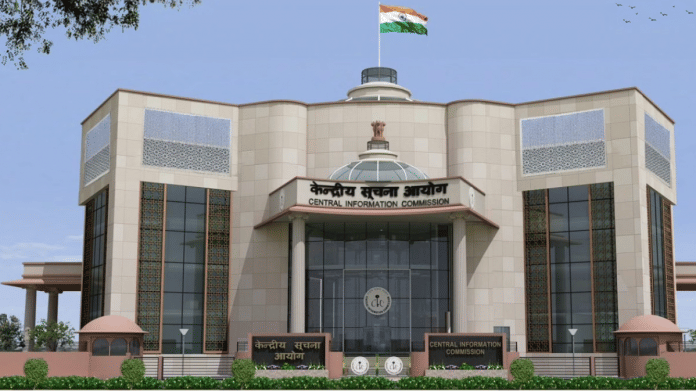New Delhi: October 2022 marks 17 years since the Right to Information (RTI) Act was implemented, widely seen as a landmark law that has allowed millions to seek information and hold the government accountable.
However, a new report finds that information commissions (ICs) are not operating up to standard. Two state commissions, those of Jharkhand and Tripura, are defunct while four are functioning without any governing head in West Bengal, Andhra Pradesh, Telangana and Manipur.
The report by Delhi-based Satark Nagrik Foundation has ironically accessed this data through the RTI Act.
The report says: “Life-changing events such as the Covid-19 pandemic highlighted the importance of easy, safe and accessible dissemination of information that plays a vital role in the health and wellbeing of citizens. ICs are intended to facilitate this.”
Incidentally, a February 2019 Supreme Court judgement states as such. “In the entire scheme provided under the RTI Act, existence of these institutions (ICs) becomes imperative and they are vital for the smooth functioning of the RTI Act.”
The report examines the performance of all 29 commissions, looking into the number of appeals and complaints registered and then cleared by them. It is effectively an analysis of information accessed under the Act.
It finds that as of 30 June this year, over three lakh appeals were pending – with the backlog increasing steadily. The number has risen by almost one lakh over the past year. This is largely due to commissions operating at reduced capacities.
The Maharashtra commission currently has five information commissioners, while West Bengal has only two, against a full strength of 11. Karnataka is one of the few states operating with the required capacity, despite the number of appeals having gone up.
Maharashtra leads the pack with over 90 thousand RTIs pending, with only 9 states having less than a thousand. Mizoram, notably, doesn’t have a single RTI pending.
Given this rate of pendency and the average disposal rate in commissions, as of now it would take the West Bengal commission an appalling 24 years and 3 months to deal with a matter. In Maharashtra and Odisha, it would take over five. According to the report, Meghalaya and Mizoram are the only two states where there is “no waiting time”.
According to the Act, a penalty of Rs 250 per day can be levied against any public official who deliberately delays or refuses to provide the information demanded. This too has not been adhered to. The ICs did not impose fines over 90 per cent of the time.
Section 25 of the RTI Act states each commission must publish an annual report detailing their functioning and the implementation of the Act. In 2020, 20 out of the 29 commissions did not fulfill this requirement.
Also read: Gujarat: RTI activist injured, son killed by man accused of illegal sand mining, land grabbing






